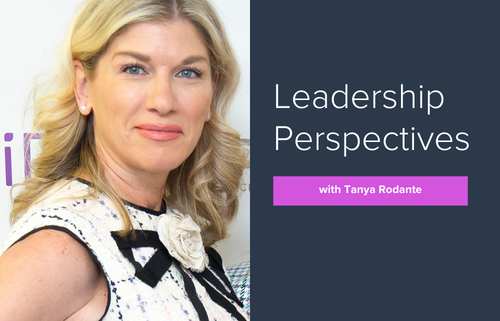
Key Takeaways from the STAT News Breakthrough Summit West
Recently, I attended the invitation-only STAT News Breakthrough Summit West in San Francisco. Held at The Commonwealth Club, the event was impressive, to say the least! It was a jam-packed day full of thoughtful discussions. AI and its huge potential in medicine was the dominant topic in conversations and the event agenda.
I wish I could share each highlight, but below are five key takeaways that made me think about how H+C can apply these to our client work. That could take the form of advising clients how to navigate the waters of AI misconceptions to counseling them on how to position their products against market dynamics. Working at the intersection of tech and life sciences is exciting because of its potential to make our lives better – and this event clearly demonstrated that.
➕ Key Drivers for AI Success in Biotechnology
Kimberly Powell, vice president of healthcare at AI powerhouse NVIDIA sat with STAT News’ Casey Ross (up for a Pulitzer), who outlined the three essential components for how AI will accelerate drug discovery:
- Data, the vast amounts required to power AI (health data is 30% of the world’s data)
- Generative Pre-trained Transformer (GPT)
- Accelerated computing working through huge data farms
These three elements converge to enable the modeling of biology and drug behavior, marking a pivotal trifecta for accelerating drug discovery– especially impactful for difficult-to-conquer rare diseases.
➕ Doctors Challenged with Wearables Data
Digital health companies have seen challenges and headwinds since the boom of its usage during the COVID pandemic when so much healthcare went from in-clinic visits to remote. Funding for these companies has since slowed, regulations and reimbursement are unclear, and some studies have shown the value of digital health usage is questionable. One primary clinician from the University of California, San Francisco discussed the utility and limitation of wearables data, given challenges accessing and interpreting it from the myriad of devices like insulin pumps, activity trackers, blood pressure cuffs, glucose monitors and more. Many times, HCPs receive an avalanche of data and no training in how to apply it for optimal treatment, or struggle with limited time and resources to sift through the data. More work is needed to understand how to leverage the mountains of valuable health data coming from wearables, both in clinical practices and in drug discovery studies that require real-world data that feeds AI.
➕ Health Tech Solutions For Black Women by Black Women
There are many smart Black women founders developing health tech solutions to address the Black maternal mortality crisis, but they face significant challenges as entrepreneurs in healthcare tech. One major barrier is the lack of perceived value of Black mothers and the socioeconomic perceptions that come along with these challenges. Through tech like Poppy Seed Health, a mobile app for women on the maternal journey that connects women to HCPs, these entrepreneurs are tackling the issue of Black maternal health and providing much-needed access to high-quality care.
➕ How To Train an AI Model: ChatGPT for Genomes
Deep science alert! This panel discussed the ARC Institutes EVO, an AI model capable of predicting a wide range of features of DNA, RNA, and proteins, and even designing genes, proteins, and protein-RNA complexes, such as CRISPR. EVO is a powerful demonstration of how AI may help scientists unravel poorly understood aspects of biology and disease. It joins other breakthroughs in predicting protein structures and interactions by multiple model developers, including David Baker at the University of Washington, Google’s AlphaFold and most recently AlphaFold 3 from Google’s DeepMind subsidiary Isomorphic Labs.
➕ Science Integrity, Fraud and Hype Around AI
Two of the most robust discussions were on expectations for AI and the fraud that is sometimes associated with GPT-generated scientific publications. Researchers, industry leaders, media, and clinicians all agreed on the watershed impact AI continues to make in science and medicine. But science watchdogs warned of maintaining scientific integrity, particularly in combating fake papers and publications with AI-generated images and content. Challenges exist, such as ensuring the vast volumes of data that drive AI are accurate in getting it right (garbage in, garbage out). Researchers and investors alike agreed that AI’s real impact on drug discovery is five to 10 years away. Many of these thought leaders emphasized the need for the media to spotlight these issues and set expectations accordingly. For communications experts like the team at Health+Commerce, this is a prime opportunity to advise our clients on the importance of communicating fair and balanced messages on AI, and being good stewards on the realistic and impactful role that it will continue to play in healthcare.



